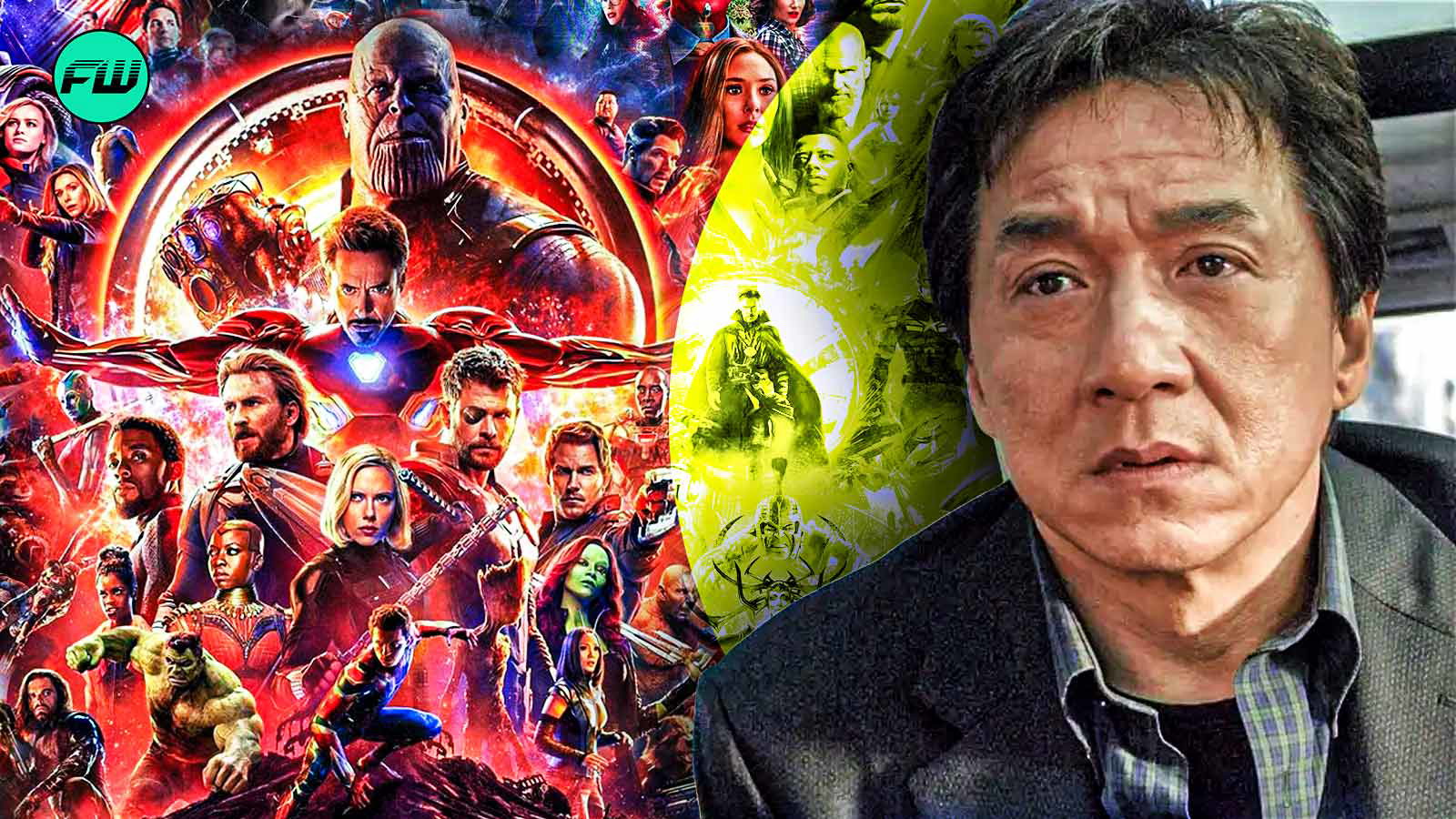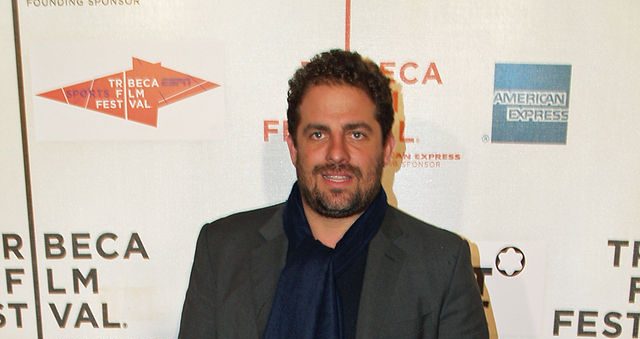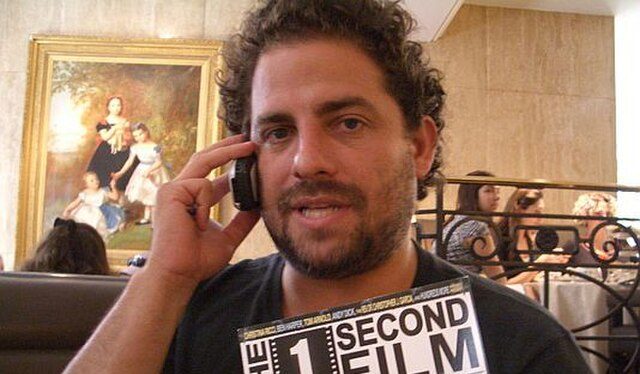For decades, Jackie Chan has been a name synonymous with action-packed, comedic entertainment. From his early days in Hong Kong cinema to his rise as an international superstar, Chan has consistently delivered performances that blend jaw-dropping stunts with his unique brand of humor. Among his most beloved projects is the Rush Hour trilogy, where his chemistry with Chris Tucker produced a series of films that became instant classics.

Fans have been clamoring for a fourth installment for years, but despite the overwhelming demand, Rush Hour 4 remains in a state of limbo. The reason? A dark cloud looms over the project, cast by none other than its original director, Brett Ratner.
The Rush Hour films have been a significant part of Chan’s Hollywood career. The trilogy, which began in 1998, paired Chan’s martial arts prowess with Tucker’s rapid-fire wit, creating a cross-cultural buddy-cop comedy that resonated with audiences worldwide.
Over three films, the franchise grossed nearly $850 million globally, cementing its place in the pantheon of action-comedy greats. Naturally, the idea of a fourth film has long been a tantalizing prospect for fans and industry insiders alike. However, the involvement of Brett Ratner has turned what should have been a sure-fire hit into a project that no studio wants to touch.

Brett Ratner, who directed all three previous Rush Hour films, was once a highly sought-after filmmaker in Hollywood. His portfolio includes hits like X-Men: The Last Stand and Red Dragon, which showcased his ability to handle big-budget, high-stakes productions. But Ratner’s career came to a screeching halt in 2017 when multiple women accused him of sexual misconduct.
These allegations, which included accounts of harassment and assault, sent shockwaves through the industry at the height of the #MeToo movement. Actresses like Natasha Henstridge and Olivia Munn came forward with disturbing stories, painting a picture of a man who had abused his power in the most reprehensible ways.
The fallout was swift and severe. Ratner was dropped by his agency and effectively blacklisted from Hollywood. His planned projects were shelved, and his reputation was in tatters. Despite the severity of the accusations, Ratner has largely avoided the public eye, seemingly hoping that time would allow him to make a quiet return to the industry.

But as the years have passed, it has become increasingly clear that Ratner’s hopes for a comeback are little more than a pipe dream. The mere mention of his name is enough to send studios running in the opposite direction, and this has had a profound impact on the prospects of Rush Hour 4.
In the years since the allegations surfaced, there have been periodic reports that Ratner is trying to get Rush Hour 4 off the ground. He has reportedly shopped the project around to various studios, but to no avail. Despite the presence of Jackie Chan and Chris Tucker, two names that would normally guarantee interest, no one is willing to take the risk.
The association with Ratner is simply too toxic, and in today’s climate, where accountability and transparency are more important than ever, no studio wants to be seen as giving a second chance to someone with such a tainted history.
The situation has left fans in a frustrating limbo. On one hand, there is a palpable desire for another Rush Hour film. The trilogy remains incredibly popular, and the idea of seeing Chan and Tucker reunite on screen is an exciting prospect. On the other hand, the thought of Brett Ratner being involved in any capacity is a dealbreaker for many.
Social media is rife with calls for Ratner to be removed from the project, with fans arguing that the film could proceed if only a new director were brought on board. However, it seems that Ratner’s attachment to Rush Hour 4 is a significant roadblock, one that might be insurmountable without a complete overhaul of the project’s leadership.
The reluctance of studios to greenlight Rush Hour 4 is not just about public perception. There are also significant legal and financial risks involved. In an industry where reputation is everything, any studio that chooses to work with Ratner could face backlash from audiences, critics, and even their own employees.
Moreover, the potential for lawsuits or other legal complications arising from Ratner’s past actions adds another layer of complexity. In an era where corporate responsibility and ethical standards are under intense scrutiny, the idea of associating with someone like Ratner is simply untenable for most companies.
Interestingly, this situation has opened up a broader conversation about the power dynamics in Hollywood and the long-lasting impact of the #MeToo movement. Ratner’s fall from grace is just one example of how the industry has been forced to reckon with its darker side.
The movement has empowered countless individuals to speak out against their abusers, leading to significant changes in how the industry operates. However, it has also raised questions about redemption and the possibility of second chances. Can someone like Ratner ever be rehabilitated in the eyes of the public, or are some transgressions simply unforgivable?
For Jackie Chan and Chris Tucker, the situation is undoubtedly frustrating. Both actors have expressed interest in returning for Rush Hour 4, and their chemistry is something that fans have been eager to see again. However, the baggage that comes with Ratner’s involvement has made it nearly impossible to move forward.
Chan, in particular, is in a difficult position. He has built his career on being a beloved figure in the industry, known for his kindness, humility, and incredible work ethic. Associating himself with a project tainted by scandal could risk tarnishing that reputation, something he has worked tirelessly to maintain.

Chris Tucker, who has been selective with his roles in recent years, also faces a tough decision. The Rush Hour films were a significant part of his rise to fame, and the opportunity to revisit that success must be tempting. However, like Chan, Tucker must weigh the potential risks of being associated with Brett Ratner. The actor has been relatively quiet on the issue, but it is clear that any involvement in Rush Hour 4 would come with significant scrutiny, both from the media and the public.
As the standoff continues, some have suggested alternative solutions. One idea that has gained traction among fans is the possibility of moving forward with Rush Hour 4 under new direction, completely severing ties with Ratner.
This would allow the franchise to continue while addressing the concerns that have been raised. However, this is easier said than done. Ratner’s connection to the project is deep, and it is unclear whether he would be willing to step aside, even if it meant the film finally getting made.
There is also the question of whether the magic of the original trilogy can be recaptured without Ratner at the helm. While his actions are inexcusable, it is undeniable that he played a significant role in shaping the Rush Hour films.
His understanding of the dynamic between Chan and Tucker, as well as his ability to balance action with comedy, was a key ingredient in the trilogy’s success. Replacing him with another director could alter the chemistry of the franchise, potentially leading to a film that feels different from its predecessors.
Ultimately, the future of Rush Hour 4 remains uncertain. The project is stuck in a state of development hell, with no clear path forward. Studios are understandably cautious, fans are divided, and the shadow of Brett Ratner’s past continues to loom large.
Whether the film will ever see the light of day is anyone’s guess. What is clear, however, is that any progress will require difficult decisions and a willingness to confront the uncomfortable truths that have emerged in the wake of the #MeToo movement.
For now, Jackie Chan and Chris Tucker will have to wait, along with the millions of fans who have been hoping for a return to the world of Rush Hour. The situation is a stark reminder of how the actions of a single individual can have far-reaching consequences, affecting not just their own career but the careers of those around them.
As the industry continues to evolve, it will be interesting to see how Hollywood navigates the complex terrain of accountability, redemption, and the desire to move forward while honoring the voices of those who have been wronged.
In the end, the story of Rush Hour 4 is not just about a movie that might never get made. It is a microcosm of the larger issues facing Hollywood today—a reflection of an industry in the midst of profound change, grappling with its past while trying to chart a course for the future.

Whether or not Rush Hour 4 ever makes it to theaters, the lessons learned from this saga will likely resonate for years to come, influencing how films are made, who gets to make them, and what it means to be part of an industry that is, at its core, about storytelling.
News
😎👌🔥 Northern Illinois HC Thomas Hammock’s Emotional Victory Over Notre Dame
In the realm of college football, victories are often celebrated with exuberance and fanfare. However, some wins resonate deeper, touching the very core of human emotion. One such moment unfolded recently when Northern Illinois University’s head coach, Thomas Hammock, led…
🧎♂️ John Elway’s Controversial Stance: Kneel During the Anthem and Face the Consequences
In a bold and highly controversial move, legendary NFL figure and former Denver Broncos coach, John Elway, has ignited a firestorm of debate with his firm declaration that kneeling during the national anthem will no longer be tolerated on his…
🏋🏽🔥💪🏼🎧 THE HEARTFELT TRIUMPH: Coach Thomas Hammock’s Emotional Victory Over Notre Dame
In the world of college football, few moments resonate as deeply as a historic victory, especially when it comes against a powerhouse like Notre Dame. This past Saturday, Northern Illinois University (NIU) achieved the unthinkable by defeating the Fighting Irish…
🤼 The Controversy of Nike and Colin Kaepernick: A Deep Dive into Harrison Butker’s Bold Stance
In the world of sports, few topics ignite as much passion and debate as the intersection of politics and athletics. Recently, NFL kicker Harrison Butker has made headlines with his outspoken criticism of Nike, a brand that has been synonymous…
💶 Harrison Butker’s Bold Stand: Turning Down $25 Million from Nike
Harrison Butker, the star kicker for the Kansas City Chiefs, has made headlines for his audacious rejection of a staggering $25 million partnership with Nike. His bold statement, “Not even $1 billion could save their woke brand!” has sparked both…
🙀 Tua Tagovailoa’s Latest Concussion Scare: A Deep Dive into the Incident and Its Implications
In the world of professional football, injuries are an unfortunate reality, but few are as alarming as those that involve head trauma. The latest incident involving Miami Dolphins quarterback Tua Tagovailoa during a Thursday Night Football game against the Buffalo…
End of content
No more pages to load











